Best Bingo Books for Bingo Lovers
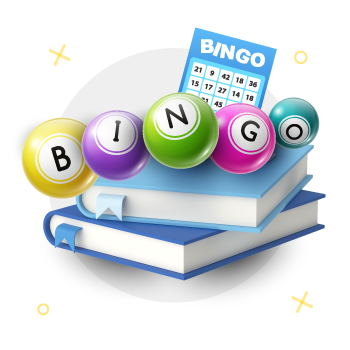
Bingo books are a great way to learn about the game. Although bingo doesn’t inspire many books due to its simplistic nature and lack of strategy, you can still find some intriguing titles.
You might be interested in these works when seeking the few existing bingo strategy tidbits. Additionally, some bingo books provide entertainment and exciting stories about the game.
Follow along as we cover the top books about bingo and what makes them so great.
Books on Bingo
Best Bingo Strategy Books & Fun Reads
Explore Online Real Money Bingo Casinos
The Online United States Casinos expert Ashley Grasse compiled a list of the best Online Bingo Casinos for US players. You can rest assured that the games are legit and not rigged. Check out what each site has to offer!
Top 8 Interesting Books About Bingo
The evolution of bingo books has gone from ineffective systems to more-practical advice that provides some benefits. You won’t become an advantage gambler by reading these works, but you could add a few dollars to your bottom line.
Aside from the strategy books covered below, this list includes bingo game books for entertainment. It also highlights multiple works about ineffective systems, so you know what to avoid.
Bingo! How to Improve Your Odds (2001) by Andrew Bowser
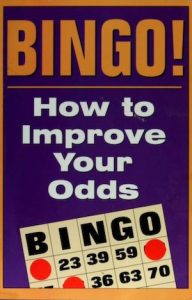
Unlike many authors, Bowser doesn’t push systems, patterns, or other worthless strategies. He even explains why these approaches don’t work throughout his 80-page book.
The New York-based writer focuses on bingo’s practical side while offering some essential tips.
Bowser explains how to determine your odds of winning in a live game. You need to divide your cards by the estimated number of cards in the room.
Bowser also provides tips on how to stay alert during extended playing sessions. None of this advice is earth-shattering, but it’s practical and will help you.
This book tops the list precisely because it offers the most useful advice to bingo players without delving into any dubious concepts or theories as other books on the list.
Andrew Bowser
Andrew Bowser began his journalism career by writing for gambling-related magazines. He built his credentials through Bingo Business, Casino Magazine, and The Gaming Journal. Bowser’s bingo expertise landed him a book deal in the early 2000s, which led to his signature work, Bingo! How to Improve Your Odds.
His writing style focuses on proven tips that help you win more. He lays out the realistic odds of winning in bingo and does not promise that his advice will lead to guaranteed profits. Some gamblers may find this approach refreshing, whereas many bingo books focus on theoretical and luck-based concepts.
How to Win at Bingo (1977) by Joseph E. Granville
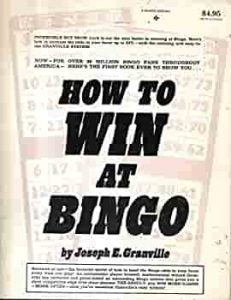
Now let’s get into a book that doesn’t work regarding bingo strategy. Joe Granville’s How to Win at Bingo is revolutionary because it’s one of the earliest strategy guides.
This 145-page book advises readers to choose cards with optimal number combinations. Granville uses stats to suggest that 60% of the first-called balls have different last digits. For example, you’d avoid cards with numbers like 15, 35, 65, and 75.
Unfortunately, the bingo advice in this book suffers from the false theory that one can manipulate a random game. Bingo games feature random results and are therefore unpredictable.
You can’t choose winning bingo cards by looking at the numbers—regardless of what the questionable 60% stat suggests.
Joseph E. Granville (1923-2013)
The late Joseph Granville is arguably the best-known author on this list. He became famous for investing advice and the on-balance volume (OBV) trading strategy. OBV theorizes that sharp trading volume increases and stagnant stock prices indicate future price increases.
Granville is also notable for being a pioneer regarding the best books on bingo. He wrote Bingo! How to Improve Your Odds in 1977—well before most bingo books. Graville’s gambling writing and theories revolve around randomizing card choices and seeking numbers with different last digits. These tips do not increase your odds of winning but represent an early attempt at bingo strategy.
Gambling Times Guide to Bingo (1986) by Roger Snowden
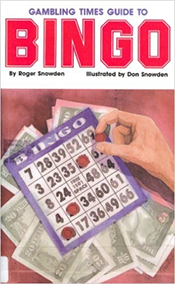
Affiliated with Gambling Times Magazine, this 194-page guide presents a mixed bag of information. The history, rules, gameplay, and terms sections are excellent.
On the other hand, the strategy section leaves something to be desired.
Snowden falls into the trap of discussing bingo systems and patterns. If interested, you can read this information for entertainment, but you’ll get the most value from the rules and gameplay sections.
You might also find the game’s history discussion interesting. This section visits sixteenth-century Italy when the government began running a bingo-themed national lottery to generate funds.
Snowden progresses through the centuries by covering bingo origins in France (1700s), Germany (1800s), and the US (1900s). The US portion details how toy salesman Edwin Lowe introduced this game to wider American audiences.
Roger Snowden
Roger Snowden deems himself “The world’s foremost authority on bingo today.” He may be right, considering that he has decades of industry experience.
Snowden has two of the best books about bingo to his credit. The Gambling Times Guide to Bingo particularly stands out. He also published the Bingo Bugle for years, amassing a large following in the US and Canada.
Snowden is not a great bingo strategist and often reverts to discussing debunked systems. However, he is his best when detailing bingo history, news, and rules. Few authors are as engaging when covering these subjects as Snowden.
Keep Grandma Off the Streets (2013) by Matthew Del Mei
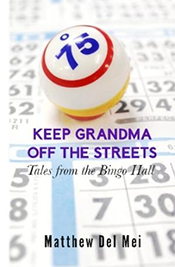
Keep Grandma Off the Streets: Tales from the Bingo Hall isn’t a strategy book but rather an entertaining read.
It features 25 short stories about players and employees at a bingo parlor. Every story relates bingo to life and offers a mixture of drama and humor.
Matthew Del Mei generates ideas via his experience working in a bingo hall. He calls on his observations and experiences to compile one of the best non-strategy books about bingo.
Keep Grandma Off the Streets offers a refreshing break from the dry works throughout the industry. Consider reading this book between strategy resources to break up the monotony.
This work is also perfect for gaining perspective into the other side of the industry. You may have many bingo experiences as a player, but you can gain insight into what parlor employees experience through Keep Grandma Off the Streets.
Matthew Del Mei
Matthew Del Mei has no extensive writing career, and Keep Grandma Off the Streets is his only book. He relied on his years of industry experience to write and get this work published.
Despite his limited writing background, Del Mei pens his stories in an entertaining and sometimes humorous manner. Most of these bingo tales will keep you engaged and wanting more.
The Basics of Winning Bingo (2002) by Avery Cardoza
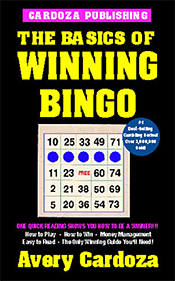
This 2002 work covers the game’s basics and tips on how to win more often. It has been through three editions, with more information added in each version.
The Basics of Winning Bingo is a decent book if you’re a beginner. However, it has little value to experienced players—especially those seeking in-depth strategy.
Cardoza may be a blackjack expert, but he seems out of his element when discussing bingo. The famed author advises readers to play multiple bingo cards with vastly different numbers from each other.
The idea is that unique cards offer more chances to hit called numbers. This approach falls into the fallacy that there’s a semblance of strategy to choosing cards.
Avery Cardoza (1957)
Avery Cardoza is one of the most published gambling authors of all time. He’s written about nearly every casino game, and it’s little surprise that he’s behind one of the best bingo books. Some of his other works include Secrets of Winning Slots, Casino Craps for the Winner, and Quick Guide to Beating Blackjack.
Cardoza began gambling during his college years at Vassar. He successfully counted cards until he was banned from most casinos at age 23.
Cardoza published his first book, Winning Casino Blackjack for the Non-Counter, after his card counting career ended. He launched Cardoza Publishing in 1981 and has sold over 9 million book copies since.
The Bingo Palace (1994) by Louise Erdrich
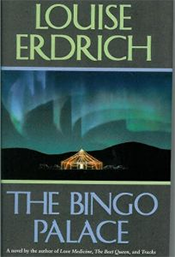
Erdrich is one of 30,000 enrolled members of the Turtle Mountain Band of Chippewa Indians. She uses Chippewa characters in most of her novels and short stories.
The same holds true in The Bingo Palace, which focuses on the lives and dramas of tribal bingo employees.
You might find Erdrich’s perspective unique compared to other authors on this list. The Bingo Palace explores how a successful and expanding gambling parlor threatens sacred Chippewa land.
This book also focuses on a love story between Lipsha Morrissey and Shawnee Ray. Morrissey has returned to the reservation after being summoned by his grandmother, ultimately finding work at the reservation’s Bingo Palace.
Louise Erdrich (1954-present)
Louise Erdrich began writing as a child, receiving a nickel from her father for every completed story. She became more ingrained in writing while attending Dartmouth University. Erdrich learned about her Native American ancestry in college and has drawn on this heritage for many stories and books.
The Bingo Palace is a perfect example because it explores the tribal gaming industry. Other notable works by Erdrich include The Birchbank House, The Round House, and LaRose.
The Bingo Queens of the Oneida (2014) by Mike Hoeft
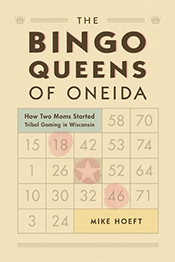
The Bingo Queens of the Oneida: How Two Moms Started Tribal Gaming in Wisconsin is a 2014 nonfiction work. It doesn’t contain any strategy, but it could be helpful if you’re interested in bingo’s business side.
Hoeft’s work examines how Alma Webster and Sandra Ninham started bingo games in Wisconsin as tribal fundraisers. The Oneida women did so in 1976, long before tribal gaming exploded in popularity.
The book traces the historical struggles of the Oneida people, part of the Iroquois nations, since the revolutionary war and through their journey to Wisconsin.
It also chronicles the lives of the notable tribal members who helped worked alongside Alma and Sandra to essentially ignite a movement that would see more tribal bingo halls spring up across America.
Mike Hoeft
Mike Hoeft graduated from the University of New Mexico with a journalism degree. He then embarked on a 30-year career as a reporter and copywriter for local newspapers. His longest stint included 23 years at the Green Bay Press-Gazette, eventually quitting to write the Bingo Queens of Oneida.
Hoeft thoroughly examines the Oneida’s plights prior to success with bingo. He covers how half the tribe lived in poverty before bingo brought many gamblers to the reservation. Hoeft also discusses the game’s positive effect on the Oneida community.
The Bingo Hall Detectives (2022) by Jonathan Whitelaw
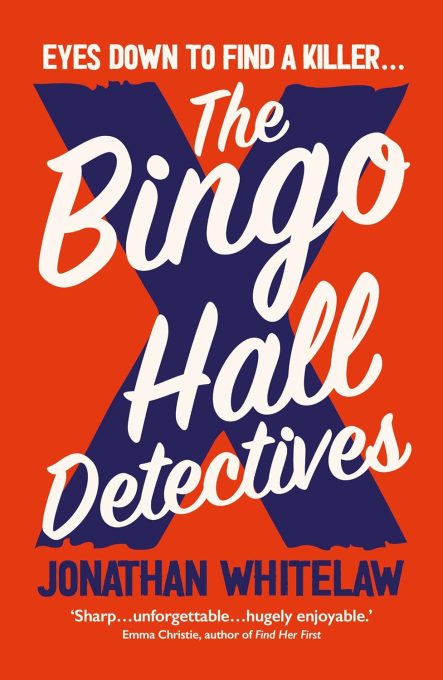
In this novel, Author Jonathan Whitelaw creates a fun mix of humor, puzzle-building, and, of course, bingo—throwing you into a world where the numbers on the cards hold the secrets of a classic “whodunit” murder mystery.
Set in the UK’s Lake District, you’ll join an unlikely duo of amateur detectives as they navigate the twists and turns of the bingo hall.
At first, they aren’t the most likable characters, but they do start growing on you as the plot unfolds.
Although the the book falls into some of the all-too-typical tropes of the genre and the 300+ pages make the story run thin at parts, I enjoyed the ride towards the big final reveal.
Jonathan Whitelaw
Whitelaw is a Scottish journalist who has contributed to various publications, showcasing his expertise in broadcasting and journalism, while gaining recognition for his foray into writing novels.
His literary efforts predominantly center around crime fiction, often incorporating elements of mystery and humor into his storytelling. One of his other notable works includes “Morbid Relations,” a darkly comedic crime story that explores family dynamics against the backdrop of crime investigation.
Expert Tip: Read Books About Bingo with Caution
Legitimate bingo strategy is limited and provides a slight uptick in your odds. You won’t find a guaranteed method of beating this game outside of rigged action. So, you should be careful with bingo game books that promise winning systems and strategies.
Many authors cover this ground because they need content to fill 100-200 pages. However, you don’t need to pay attention to their discussions on patterns and choosing the right bingo cards.
None of these strategies work and could do more harm than good.
We prefer realistic books about bingo, like Andrew Bowser’s Bingo! How to Improve Your Odds. In contrast, Joe Granville’s How to Win at Bingo delves into faulty systems and magical formulas.
Read Books on Bingo to Become a Better Player!
Bookstore shelves aren’t full of books about bingo, but you can still find some gems. Bingo! How to Improve Your Odds is our list’s best pure strategy guide. The Bingo Palace and Keep Grandma Off the Streets are good reads for entertainment.
I strongly recommend you try online bingo play if you desire to take book theory into real-life practice.
Here, you dictate the pace without the hassle and distractions found in physical venues. The beauty of online casinos lies in their flexibility; many platforms offer free trials before diving into the real-money bingo action.
A mere $25 deposit grants you access to the excitement, and individual wagers can be as low as $0.10.
